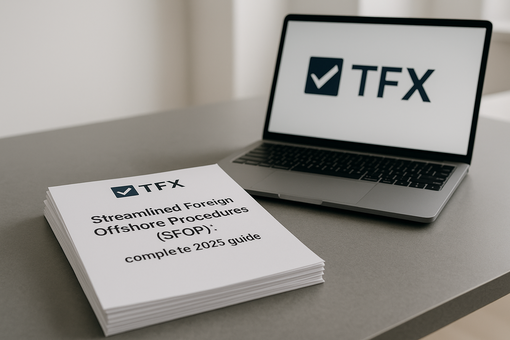Tax and Investment Advice for Expats Living in the United States

As an expat, it’s important that you familiarize yourself with some basic information about filing a tax return and reporting other information in the US.
US Expats are not alone in their plight to file income taxes and report their worldwide income and assets. If you’re an expat who’s living in the United States from another country, you most likely have similar difficulties – not only in reporting income taxes to your home country, but also reporting foreign assets after becoming a permanent resident in the United States.
Not all countries tax their citizens on worldwide income, but there are plenty who do. Whether or not you’re required to claim your US-sourced income to your home country will have no bearing on your requirement to file a tax return and report certain information about your overseas assets.
If you are considered a resident of the United States, you must report your foreign assets if they exceed certain thresholds.
As a US Resident, you are required to report all of your worldwide financial accounts and assets. The thresholds vary, but if you have more than $10K in one or more foreign financial accounts or very valuable assets, you will want to familiarize yourself with forms like FinCEN Form 114 and Form 8938.
The filing of your worldwide assets is mandatory, and putting it off will only result in large penalties when the IRS becomes aware of your money and your valuables. Aside from the financial consequences, you may be facing criminal charges on a federal level. It’s very possible (even probable) that the IRS will identify you sometime in the near future. With the continuous expansion of FATCA, foreign banks are reporting information to the United States about accounts held by US Persons. Really, there’s nowhere to hide for too long. Many countries report this information to their tax authority who, in turn, submit the information to the IRS. One way or another, the IRS receives information about your foreign assets.
There’s even more requirements if you have certain types of assets. The IRS rules and regulations around a variety of foreign assets can be quite complicated.
If you have any foreign business interest, foreign pensions, trusts, mutual funds, or insurance policies, you will be facing extremely complex rules. If you are reading this before actually becoming a US Resident, consider all these types of investments and how they’re treated from a US tax perspective. Your best move may be to liquidate your assets and just keep the cash in an account for which you will not have to pay taxes (although you will be required to report it).
Before moving out of the United States, make a decision on what you’re going to do with your retirement accounts that you’ve built up in the United States.
A great number of foreigners are able to build up quite substantial retirement accounts in the United States. If you have a retirement account such as an IRA or a 401(k), you may be wondering about how to deal with these retirement accounts once you move back overseas. If you cash in your account(s) before reaching the retirement age, you could be facing early withdrawal penalties and high taxes. On the flip side, a US retirement account is regarded by the IRS as a situs asset and will be subject to a high rate of taxation if the NRA (Non Resident Alien) dies while still having possession over the asset(s).



